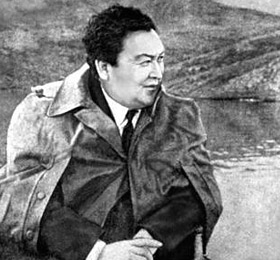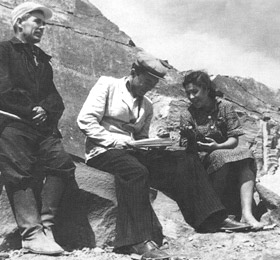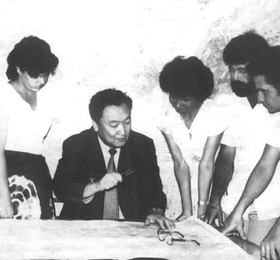Bimarzhan Assatova
Specialty: Biological Sciences. Internship: MIT, USA.
 Small and beloved Arkalyk remained in childhood. The 22-year-old student now goes to the Nazarbayev University. Last year, she won the summer internship competition of the Academician Shakhmardan Yessenov Science and Education Foundation and travelled to Professor Robert Weinberg, at the Institute of Biomedical Research, which is part of MIT. Now Bimarzhan is completing her undergraduate program and is seriously musing where to go next.
Small and beloved Arkalyk remained in childhood. The 22-year-old student now goes to the Nazarbayev University. Last year, she won the summer internship competition of the Academician Shakhmardan Yessenov Science and Education Foundation and travelled to Professor Robert Weinberg, at the Institute of Biomedical Research, which is part of MIT. Now Bimarzhan is completing her undergraduate program and is seriously musing where to go next.
How did you come to love biosciences?
Since I was a little girl, I have always been wondering about the structure of a human body and illnesses. My mother is a doctor, she used to share some facts from medicine, giving me the books on biology and medicine. After that I usually went to my grandfather and pompously told him everything I had learned. Fortunately, I had a very good biology teacher at school who was always ready to answer my questions and assist in my projects.
What was interesting for you in the competition?
I actually started thinking big, believing in myself. I was hazy and pensive on whether I should apply or not. However, the competition process and the victory finally made me realize that I would never be good enough or ready for anything to the desired extent, so I just need to do something.
What are your hobbies?
I used to go in for speed skating, and in the first year at the university I taught basic lessons in one of the ice arenas in Astana. At the university, I started practicing ballroom dancing, and it so happened that when I went for my internship at MIT, I was still dancing the classical program there (waltz, foxtrot, tango, quickstep) in the university team.
What was your work during the internship?
My research work was focused on serous ovarian cancer of a high degree of severity. Survival statistics for it are very low, as a rule, patients die within 5 years, this is due to a poor response to treatment and a high rate of metastasis. My goal was to understand how genetic mutations affect the ability of cells to create a microenvironment around themselves – something like protection against anti-cancer drugs. I had to understand how cancer cells suppress the immune system’s ability to destruct cancer cells.
What are your achievements over 5 month internship?
I had a project which was to analyze the effect of a specific set of mutations in two cancer cell lines in the response to drugs. It so happened that there was one type of mutation that gave two completely different responses to treatment depending on the cell line (the same origin). I did an analysis and identified 5 proteins that could potentially be responsible for treatment resistance. By the end of the internship, I was able to narrow the list of “suspects” to 3. The project has not yet been completed; we are now conducting experiments on mice. Prior to my internship in Boston, I was sure that I would continue my career and start my PhD program, but after working at the Massachusetts General Hospital, I realized that I would not be happy with science alone. Therefore, I am still in the process of making a decision.
What tips can you give to students wishing to study abroad?
High status of the university is not equal to the high quality of the program, a healthy working atmosphere and the ability to break a record. Therefore, when choosing a university, look not only at the rating of an educational institution. Over time, this will no longer be as important as your motivation to do what you truly love, even when you have a bad hair day. It is not so important where to study, what is truly important is how you do it and who is around you. One more thing: believe in yourself, always.
16.03.20, Stories
Seen by: 273




